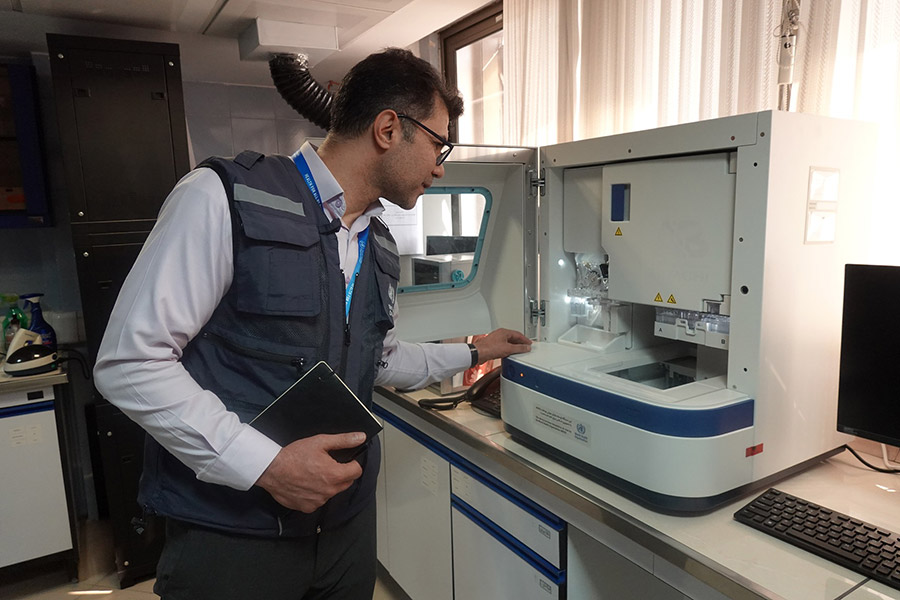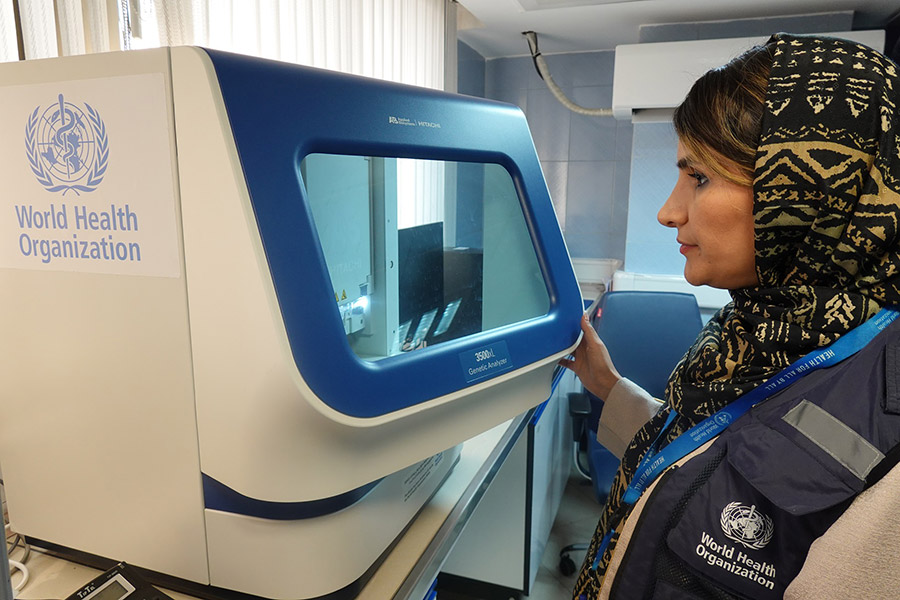 24 October 2023 – To further strengthen the fight against poliomyelitis, WHO has provided the Islamic Republic of Iran’s National Polio Laboratory with a cutting edge sequencing machine. This donation coincides with World Polio Day 2023, reaffirming the commitment of both WHO and the National Polio Laboratory to eradicate polio and ensure a healthier future for all.
24 October 2023 – To further strengthen the fight against poliomyelitis, WHO has provided the Islamic Republic of Iran’s National Polio Laboratory with a cutting edge sequencing machine. This donation coincides with World Polio Day 2023, reaffirming the commitment of both WHO and the National Polio Laboratory to eradicate polio and ensure a healthier future for all.
The donated machine, renowned for its precision and versatility, will significantly boost the National Polio Laboratory’s genetic sequencing capabilities. This advanced equipment drastically reduces the time required to sequence the virus genome, from days to just a few hours. This addition empowers the laboratory to swiftly conduct high-quality, reliable genetic sequencing of samples, facilitating prompt public health interventions.
Genetic sequencing plays a pivotal role in the battle against polioviruses. It helps confirm their detection, pinpoint their likely origin, track their geographic spread and determine the most appropriate vaccination response. The National Polio Laboratory can also use its enhanced capabilities to support neighbouring countries, particularly those last strongholds of the wild poliovirus, by sequencing their polio samples.
> “The WHO Country Office in the Islamic Republic of Iran is unwavering in its commitment to maintain the country’s polio-free status, a remarkable achievement observed for the past 23 years, since 2000. This commitment is realized through various capacity-building initiatives and activities,” said Dr Syed Jaffar Hussain, WHO Representative and Head of Mission to the Islamic Republic of Iran.
“The WHO Country Office in the Islamic Republic of Iran is unwavering in its commitment to maintain the country’s polio-free status, a remarkable achievement observed for the past 23 years, since 2000. This commitment is realized through various capacity-building initiatives and activities,” said Dr Syed Jaffar Hussain, WHO Representative and Head of Mission to the Islamic Republic of Iran.
“WHO supports the Ministry of Health and Medical Education by providing essential laboratory supplies and equipment, enhancing the technical expertise of National Polio Laboratory experts, and aiding the detection of poliovirus in both humans and the environment, through acute flaccid paralysis surveillance and environmental surveillance respectively,” added Dr Hussain.
Dr Hussain underscored that in addition to these efforts, WHO continues to stand by the Ministry in conducting mass vaccination campaigns during outbreaks and ensuring the containment of polioviruses. This comprehensive approach is an essential component of the global mission to end polio and aligns with the International Health Regulations (IHR) 2005, and other international instruments, to safeguard public health in the Islamic Republic of Iran and beyond.








